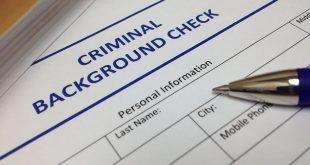 Many of us have no clear idea of what the term Bankruptcy actually is, and so this article will help to create a calming and informative environment, enabling the person to give their financial situation some real thought and know that they are going to experience it all equipped with the facts surrounding the term that has served to embarrass so many individuals the world over. The reader should be safe in the knowledge that the term Bankruptcy is actually a practice in which people are qualified to help them make decisions that can gear them towards solving their financial problems.
Many of us have no clear idea of what the term Bankruptcy actually is, and so this article will help to create a calming and informative environment, enabling the person to give their financial situation some real thought and know that they are going to experience it all equipped with the facts surrounding the term that has served to embarrass so many individuals the world over. The reader should be safe in the knowledge that the term Bankruptcy is actually a practice in which people are qualified to help them make decisions that can gear them towards solving their financial problems.
What is Bankruptcy exactly?
Bankruptcy is a procedure under federal law designed to protect individuals who are suffering financial problems. It is given to people who need to get rid of debts so that they can make a fresh start. It should not be taken lightly however. It’s a serious situation which brings with it a lot of responsibility.
It may be an embarrassing and humbling experience but there is a solution and you will come out of the other side looking and feeling a lot better than before.
There are three different types and they are slightly different in terms of how much property is exempt from repayment and the time in which you have to repay existing debts. In the majority of cases, most, if not all of your property will be exempt so that you are able to turn your life around.
Do I have other options?
Bankruptcy may not be the only option for you. There are always alternatives. Maybe you are eligible to a debt payment scheme in which you must repay over three years. Unfortunately, this affects your credit. But if you are already damaged, moving forward and having a positive outlook for the future are the most important points to focus on here.
Am I eligible for Bankruptcy?
You will need to consult a qualified lawyer who will tell you whether you are eligible or not. They will also tell you which type of Bankruptcy you should file. They will give you a means test to assess your income: debt ratio.
If you don’t qualify there are still alternatives out there. Negotiations and out of court settlements exist as a fall back to being denied for filing yourselfor your company Bankrupt.
What are the stages of Bankruptcy?
The following steps are strict in nature and failure to follow them means your case may be dismissed:
- Prior to filing you have to complete credit counselling with approved services.
- Obtain a certificate from this counselling service describing your situation.
- File a petition with the Bankruptcy court regarding financial matters, creditors and income. This is like a means test form which you must pay for. However, if your income falls in a certain bracket, the fee could be waived.
- Attend a creditor meeting where your identity and accuracy of financial information will be verified. Creditors may also attend and they can ask certain questions too, for example, questions about your income and future intentions.
Are there any misconceptions?
Many people think of Bankruptcy as something you can never recover from. They think you will lose your home, your car, everything. This is not the case. Bankruptcy doesn’t mean you are going to lose your personal possessions. This is a rare occurrence. There is always a plan in place to protect you from such consequences.
What do I NOT do when filing Bankruptcy?
The data that you provide at every stage of the process must be accurate and true to the best of your knowledge or you could suffer severe consequences and risk making your situation even worse.
You should never move assets around or hide them, continue to use credit cards or buy expensive things prior to filing for Bankruptcy. You will leave people with a very bad impression and open yourself up to criminal charges that you will find difficult to recover from.
Your behaviour before filing for Bankruptcy is one of the most important aspects in your case, and luckily for you, the most controllable factor!
This article is written by James Franklin on behalf of http://ebankruptcy.com.au/.

Very interesting topic about bankruptcy. We need this kind of information to gather more knowledge in bankruptcy before we file for it.